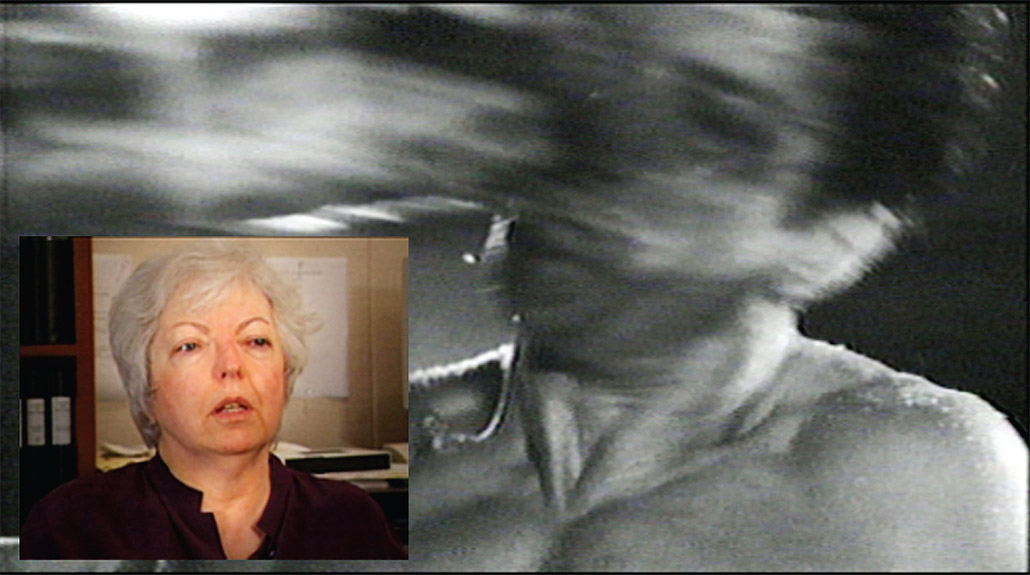by Kevin Lewis
Despite its “below-the-line” status, the craft of editing is emerging to claim its recognition as an essential role in the creation of the motion picture. After decades of virtually no examinations on the technique and artistry of film editing, two acclaimed documentaries on editing by two master film editors have been produced in the last year—The American Cinema Editors’ The Cutting Edge: The Magic of Movie Editing, directed by Wendy Apple and produced by Apple and Editors Guild Board member Alan Heim, ACE, (previously covered in these pages) and the Canadian film Edge Codes.com: The Art of Motion Picture Editing, directed by Alex Shuper and produced by Phillip Daniels. Edge Codes.com effectively interweaves the interviews with editors and others into a smoothly cut conversation about the history of editing. Editors who discuss their craft and artistry in the film include Mathilde Bonnefoy (Run Lola Run), Dody Dorn, ACE (Memento), Sarah Flack (The Limey), Tony Gibbs (The Loneliness of the Long Distance Runner), Reginald Harkema (Last Night), Bruce McDonald (Highway 61), Andrew Mondshein, ACE (The Sixth Sense), Ron Sanders (The Fly), Thelma Schoonmaker, ACE (Raging Bull), Sarah Shipton (Exotica), Zach Staenberg, ACE (The Matrix Trilogy), Mary Stephen (A Summer’s Tale), Chris Tellefsen, ACE (Gummo) and David Wu (The Killer), along with directors George Lucas (Star Wars) and Norman Jewison (The Hurricane), novelist Michael Ondaatje (The English Patient) and various film and popular culture scholars.
Mondshein and Tellefsen joined Shuper and Daniels in September for a Q&A session, sponsored by Avid, at the Two Boots Pioneer Theater in Manhattan where Edge Codes.com was running. After the event, the filmmakers discussed the film and their perceptions of editing with CineMontage.
Though this is his first directorial stint, Shuper, who also edited Edge Codes.com, is a veteran editor of films in Toronto, including the documentary on Lew Wasserman, The Last Mogul (2005). He spent three years making the film. “We would do a few interviews, edit them down and combine them with others, and then take stock of what we still wanted to address and how well we were bringing our story to life,” he explains.

Alex Shuper.
The director’s determination in making a documentary about the craft of editing created a network of support among editors. He was fortunate to secure the cooperation and appearance by Lucas—a coup for the film because he is not only a former editor but also a pivotal figure in the development of digital editing. Lucas acknowledges his artistic debt to the films produced by the National Film Board of Canada—especially cinéma vérité films such as Lonely Boy and experimental ones like Pas de Deux. As Lucas says in the film, “Editing is where filmmaking hits the road.” Certainly his influence upon computerized editing with the EditDroid has paved the digital road for today’s filmmaking process.
Shuper does have one regret about participants, however; he had hoped to interest Jean-Luc Godard in discussing his editing of Breathless (1959)—a key film of the French New Wave and one of the other major influences on editing–but the notoriously iconoclastic director declined the invitation.
Aside from the techniques of editing Hollywood films, Edge Codes.com considers the Soviet, French and Canadian editing innovations, as well as acknowledges the pioneering—but still thrilling—editing of D.W. Griffith in The Birth of the Nation (1915) and Intolerance (1916). The Griffith influence is shown as a major influence on Soviet filmmaking, particularly Sergei Eisenstein in Potemkin (1925). Ironically, Schoonmaker relates that director Martin Scorsese showed her examples of Soviet films while she was editing his 1980 film Raging Bull (the famous “power shot” of Jake La Motta being pounded by Sugar Ray Robinson is one example of the reverse influence) and his more recent Gangs of New York (2002).
“My studies and practical experience as an editor revealed to me that cinematic editing really is a language and, like all languages, it does evolve and change,” says Shuper. “Moreover, it’s a language that we all understand on some level, even though we may not be consciously aware of the grammar and syntax of that language. I always felt that it was important for people to understand the power of editing since motion pictures are so prevalent in all of our lives,” he continues. “Editing, after all can completely shape the meaning of a motion picture, and to understand how that meaning is created is to empower oneself. Therefore, aside from exploring the history of editing, one of the major themes of Edge Codes.com is the power of editing as a pervasive language.”
The director’s determination in making a documentary about the craft of editing created a network of support among editors.
This idea ties into the very title of the film, according to Shuper. “Edge codes are the numeric designations that are printed on the individual frames of celluloid film, which are essential when the negative cutter assembles the final version of the film as constructed by the editor and director—but there is a deeper connotation to the term as well,” he explains. “The word `codes’ implies a syntax, a language, something that can be read. The word ‘edge’ suggests that this language is somehow on the periphery of our conscious understanding. The film is called Edge Codes.com because it is speculative about the future. And the Internet, for several reasons, is intertwined with the future of cinema.”
Indeed, the film shares its name with the website (www.edgecodes.com) from which it can be purchased for download. Producer Daniels devised the unique marketing strategy for the documentary. “We are excited about how Edge Codes.com is leading the charge in both online distribution and dual theatrical and online releases.” Theatrical distribution is very difficult for independent films, Daniels acknowledges. “But Edge Codes.com can be provided to the consumer as quickly as possible,” he explains.
“The consumer’s home is the venue.”


